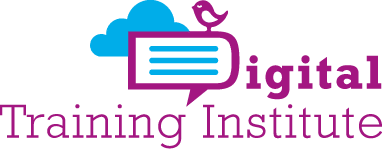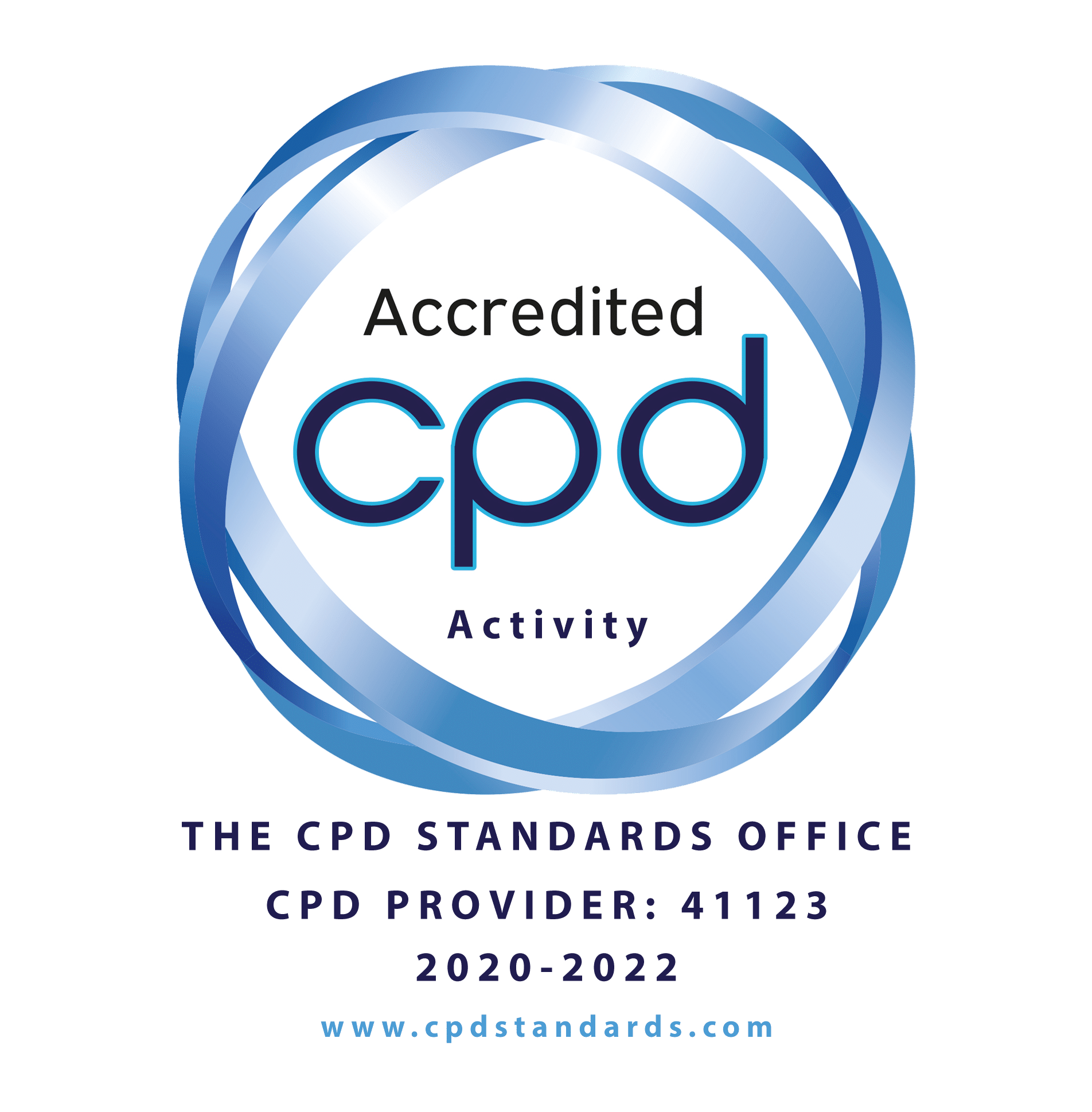7 Easy Ways To Monetize Your Blog
Blogging with no return? In this blog post I want to share my blogging experience with you which has led me to speaking internationally, blogging on influencer websites and winning new training and consulting projects. I’m passionate about what I do, and if you are too, then I can show you how to turn your blog into cash. Broken down into 7 easy steps, my formula will outline the “how”, “what”, and “where” answers you’ll need to monetize your blog.
As a “professional storyteller”, I write over 5,000 words each day in my role as a digital marketing speaker, trainer and consultant. This blog post will equip you with knowledge, skills and valuable tips you’ll need to take your blog to the next level of commercialism.
I’ve been blogging for eight years – both for my business and in a personal capacity. I’ve always loved writing and trained and worked as a journalist. So you could say I’m a professional storyteller.
I write daily – from corporate communications, digital marketing strategy, speeches, presentations, social media marketing, research papers – so blogging comes naturally to me and I love zoning in on one specific topic with the aim of sharing my opinions, tips and tricks with my online community.
As well as this helpful blog post you can also watch my webinar on this topic below.
Why blogging for business?
[clickToTweet tweet=”Blogs are considered a lead magnet in driving traffic to your website & allow you showcase your knowledge.” quote=”Blogs are considered a lead magnet in driving traffic to your website & allow you showcase your knowledge.”]
Here are some hard and fast facts however from Hubspot.
- B2B marketers that use blogs receive 67% more leads than those that do not.
- Marketers who have prioritized blogging are 13 times more likely to enjoy positive return on investment (ROI).
- By 2020, customers will manage 85% of their relationships without talking to a human. Imagine!
- The only thing blogging costs you is your time.
- Companies who blog receive 97% more links to their website.
- Blogs have been rated as the 5th most trusted source for accurate online information.
My blog DigitalTraining.ie was name one of Ireland’s Top Marketing Blogs by Search Engine Journal as part of their #SEOLYMPICS search for the best marketing blogs in the world. I was so honoured. I was also reminded that savvy blogging with a consistent approach will bear fruit and this recognition from my industry proves this.

How often should I blog?
My DigitalTraining.ie blog has 158 blog posts published over two years. So that averages out at 1.4 blog posts per week. I would really like to increase my blog count to four blog posts per week over the coming year. That’s the challenge I’m setting myself and it all starts with an editorial calendar and bulk writing. However, don’t forget to leave at least one blog post per month for trending topics and real-time marketing.
HubSpot did an analysis of their 13,500+ client’s blogging data. It’s not surprising that they found that the more you blog the more traffic you generate. Here’s some very interesting data.
Companies that published 16+ blog posts per month got almost 3.5 times more traffic than companies that published between 0 – 4 monthly posts.
Companies with 1 – 10 employees: The small companies that publish 11 or more blog posts per month drive much higher traffic than companies of the same size that publish fewer than 11 blog posts. Those that published 11+ posts per month had almost 3 times more traffic than companies publishing 0 – 1 monthly posts, and about 2 times as much traffic as those publishing 2 – 5 monthly posts.
Companies with 11 – 25 employees and 201+ employees: Like the companies with 1 – 10 employees, companies with 11 – 25 employees saw the largest jump in traffic numbers when they published more than 11 blog posts per month. In fact, when the companies with 201 or more employees published 11+ monthly posts, they got 3.5 times more traffic than those publishing 0 – 1 blog posts per month.
Companies with 26 – 200 employees: The larger companies that published 11+ blog posts per month had a little less than 2 times more traffic than those publishing 0 – 1 posts per month.
For B2C companies, there was a steady positive correlation between the number of posts and traffic.
Results for B2B companies were a little different — though there is a positive correlation between more posts and more traffic, the differences in results between each of the different volume categories are smaller. For example, you’ll notice traffic was only slightly higher for B2B companies publishing 6 – 10 monthly posts versus 0 – 1 monthly posts. But when we look at the 11+ frequency, the results increase quickly: B2B companies that blogged 11+ times per month had almost 3 times more traffic than those blogging 0 – 1 times per month.
My blogging journey
My first business blog was Running in Heels when I had my first business, a PR agency called Media Box. The blog title and brand reflected the busy-ness of my life and of course the fact that I was always running around in my heels!
My first personal blog was Mac & Me. Mac being my MacBook Pro – my laptop that comes everywhere with me. It was a fun blog chronicling my every day! Even though the blog is no more Mac still comes everywhere with me!
But blogs and businesses change and it’s all part of your evolution so it’s important not to stand still, but to grow and iterate. I’m eight years in business and my focus now is specifically digital and social media marketing, eLearning, content marketing and digital strategy for businesses including my specialist areas in online reputation and law enforcement. So you’ll find me blogging from:
Will you take my seven easy steps to monetize your blog?
#1 Personal Branding
I’ve always been very conscious of my personal brand. I think that goes back to when I became a Mum at the age of 17. Living in a small coastal village on the North West of Ireland (on a good day you can see Scotland and if you left there on a plane, the next stop would be New York!) with a population of 800 people meant that your personal brand was at the mercy of the village gossips. I can imagine if there was social media around then, the hashtag #Joanneispregnant would have been trending, because my pregnancy was the talk of the town in 1995. So I decided then that I would be the master of my own brand and take control of brand JSB. I wanted people to see the real me and so I have been consciously developing brand Joanne over the past 20 years.
How to manage your personal brand
- Have your name consistent across all your blog, social media and websites so that others know exactly what your name/brand is. There is nothing worse that somebody not knowing your name or your brand or getting it wrong so it’s your responsibility to teach them with every single online and offline opportunity.
- Consider branding your name with a unique logo. I’ve done this and use my personal brand logo on all marketing material relating to me personally.
- Google your name once a month to see what others see when they do a search. Remember to be logged out of your Gmail account/s and activate the incognito feature on Chrome so that you are browsing in private and get a true sense of what third parties see. Another tip is to Google yourself from somebody’s else’s device – mobile, tablet, laptop or desktop computer. Also Google yourself when on a trip abroad, this will reveal very different results.
- Be specific about where you direct your followers depending on who you are talking to. Direct community members to your LinkedIn profile for business opportunities. If a brand is more interested in your social conversations then consider directing them to particular blog posts or to Twitter, Facebook, Instagram and YouTube Account. For a broader experience of your portfolio of work direct them to your website and/or your blog. People buy from people so make sure there is ample opportunity for online visitors to get to know you. We need to see the person behind the profile picture!
- Develop your own personality. This sounds really silly, right? Of course we all have our own personality, but this must extend to the online world. What’s very important here is that the online you reflects the offline you – 100%. Do not create an alter ego, because when somebody decides to do business with you it may result in a face-to-face or Skype meeting, so you don’t want to have to keep up ‘an act.’ Trust me. Being you and believing in you is what matters most.
- Prepare a speaking or blogger profile and when you are contacted by a company or individual about doing some work for them have it ready. Here is my speaker profile and I discuss my fees separately with my clients. But I know my charge out rates. More on this in step number 5.
- Curate online information about yourself and include it on your website in a media section – use storify to curate it and then you can embed it on your WordPress blog – for example blog posts on third party sites, media articles, radio interviews, speaking events, videos and social media mentions. This will give viewers an immediate sense of your relevance to their brand.
- Mind your social media habits. Don’t engage in what I call ‘anti-social media behaviour.’ Did you know 1 in 10 young people in Ireland admitted to being a cyber bully in 2015? I can say that trolls largely don’t think about being cyber bullies when they are engaging in online negative behaviour. So remain professional but fun, personable but fair. What you say online in a personal capacity may impact your business brand. Will a brand want to associate themselves with you based on your personal views on a particular subject matter? Remember what’s posted online, stays online forever. Just remember there is no ‘Google delete’ button on your keyboard!
- Professional photos are paramount as opposed to using your favourite shot of you at a friend’s wedding. Please invest in professional shots which can be used as your profile photo on social media, speaker bio for conferences or events, and on other marketing material. Get a range of shots done which reflect your personality. It’s also really important to secure photos from your contributions at events, media interviews, business meetings (with approval from a client) and at your desk at work or hosting a webinar. These ‘action’ shots will also reinforce your key personal brand assets. What’s an average working day or working week for you – what shots would a photographer capture if they shadowed you during that time? This is a great way to start in terms of building up your personal professional photo library.
- Do you suffer from Glossophobia? The fear of public speaking is one that affects so many people. However, if you are to become a successful blogger you will need to perfect your verbal pitch. While bloggers operate in the online world, very many of us are using blogging as a tactic to win consultancy, face-to-face training or guest speaking business. Similarly, bloggers are considered astute communicators, so you must invest time in improving your delivery of pitches, presentations, speeches, live webinars and even media interviews. This is a whole other blog post – but the one piece of advice that I can give you (from a TEDx speaker) is be yourself, smile and you will shine, be personable and develop your own style – do not try to emanate anyone else and finally, practice makes perfect. So take on any public speaking opportunities because it is only by doing it in a real-life situation that you will improve your skills. Face the fear and do it anyway.
- Use your network. Your network will always be there for you. So use it to help you meet the right people and the right companies. I use the word ‘use’ quite liberally here, so don’t ‘ab-use’ your network by constantly asking them for favours or selling to them. Your network will work for you if you help them, share your knowledge, make an introduction, give them some advice – of course within reason. Also remember the phrase – respect who you meet on the way up as they might still be there when you are on your way down. Quite simply – treat everyone equally and don’t get too big for your boots. Stay connected. I am still in contact with people I use to work with and clients I use to work for. While we don’t do business anymore, they are still an important part of my network, because they know me and they can refer or recommend me.
Takeaway Tip: You are your brand and you must manage it with great care. Don’t be afraid to showcase yourself to the online world, but do it honestly and be true to own beliefs. Be mindful of your brand in every public and online situation because living through the Digital Age means that we are always ‘on the record.’
#2 Positioning
In order to make an impact in your industry you must position yourself astutely. ‘What does this mean,’ I hear you ask? You must take your place, but you must know your place. Are you a newbie in your field, are you just starting out; are you well-established and in growth phase, or are you a leader and an expert? Understanding where you sit will help you develop your voice and your blog posts. Don’t try to be an industry expert if you are just out of education – represent your knowledge and experience honestly.
For example, if you are starting out in your career you might chronicle the journey and share your experiences so others can learn from you and follow your tips. If you are well-established and in growth phase you might document the changes happening in your sector and how you are dealing with them – the highs and the lows; and if you consider yourself an expert you might be regularly sharing expert knowledge and free resources for your community.
There are no hard and fast rules but it is important to understand where you fit in your industry and what value you add.
I like to offer opinions and educational blogs for my readers. I have 15 years communications experience comprising journalism, public relations, corporate communications and digital and social media marketing. I’ve published a book on social media and law enforcement and I hold two academic Masters Degrees – one in journalism and one in digital marketing. They complement my 9 other academic and professional qualifications. I’m an international speaker and a media contributor on a range of topics as well as a course author, trainer/e-trainer and mentor.
I would therefore consider myself an influencer in my field and a valuable education marketer to follow.
Secondly, you must know your industry inside out. This is absolutely vital. You need to know what’s current and trending, who the key influencers are, what developments are coming down the road and what media and online conversations are happening. The point is, if you don’t know what’s happening in your industry then you are wasting your time. You cannot be relevant. You don’t deserve to have a place if you don’t know what’s going on around you.
Part of the positioning concept is to create strategic and knowledge partnerships, therefore you must know who these collaborations could be made with. Who’s in your eco-system?
When I was writing my book ‘Social Media Under Investigation, Law Enforcement and the Social Web’ I had knowledge of what academics and practitioners I was going to reference. I knew from my own work in this area that Lauri Stevens was an influencer and had many years experience in this field in the United States and Canada. So when I was looking for somebody to write the foreword for the book, I reached out to Lauri on Twitter. We were like-minded professionals and shared a deep interest in and passion for #LESM (law enforcement and social media), so the conversations were natural and the relationship was built from that very important mutual understanding.
Takeaway Tip: If things change in your industry, you need to know about it! Subscribe to influencer blogs and YouTube Channels, connect with them on LinkedIn and follow them on Twitter. Join their free webinars and interact with them on Blab. Write down a list of influencers and then get connecting!
#3 Go Niche
While the Internet offers us all an opportunity to build an online business, it’s also a place of fierce competition. It really is difficult to get noticed and to get your voice heard. With over 3 billion people online you must carve out a position for yourself. One of the ways to do this is to go niche.
More than 3 billion people are now using the Internet, according to the United Nations agency that oversees international communications. The number of Internet users has increased from 738 million in 2000 to 3.2 billion in 2015.
– International Telecommunication Union, May 2016
Focus on one area that you are a specialist in and build an online community who have, what I have coined, the POW factor.
P = prospective customers
O = online influencers
W = word of mouth marketers
I’m in the industry of digital marketing, which is very competitive. It’s a busy space with everyone vying for their own position. I have developed a few niche areas which I blog about, namely, how police forces or law enforcement agencies use social media and online reputation and cyber bullying. I will still develop content on all aspects of digital and social media marketing but having a niche gives me a greater prominence online. For example, I’m currently writing a research paper for a major retail and data analytics conference in London that I will be speaking at – so I can apply my knowledge and expertise to other sectors.
I pursued a two years Masters Degree in Digital Marketing from 2012-2014 and as part of my academic research for my 20,000-word thesis I researched how An Garda Síochána, the Irish police force, use social media on a daily basis. After completing the Masters Degree I decided I wanted to write more broadly on how law enforcement agencies across the world use social media, so in February 2015 – six months after submitting my Masters thesis – I launched my first book – Social Media Under Investigation, Law Enforcement and the Social Web.
If you are a fashion and lifestyle blogger for example, how are you going to differentiate yourself from the thousands of others out there? What makes you different, what’s your niche? If you are just like everyone else, then you’re going to find it difficult to garner an online community. Could you focus on fashion for women under 5ft, or new mums, professionals and executives or are you more suited to adventure seekers? Stick to what you know and what you are passionate about and conduct some research online to see what others are doing in this area.
Complete a deep Internet search on Google, You Tube and social media sites of your niche area and put a document together of what you’ve found. Highlight the strategies that work and those that are less than engaging. This will give you ideas which you can then put your own stamp on.
Takeaway Tip: Don’t be a small fish in the Pacific Ocean, be a great white shark visiting the Atlantic Ocean – you’re more likely to get noticed!
#4 Think Big
When blogging and driving traffic to your website, you have to take a global view. It’s simply not about raising your profile in your town, city or country – remember that you are reaching out to people, brands and organisations that are interested in your content from across the world.
Up until a year ago I would have had a very narrow view of my business potential and believed my business opportunities were limited to Ireland. However, then I took off my ‘narrow-minded glasses’ and began to think big. This ‘think big’ mentality was brought into sharp focus with the publication of my book. I quickly realised that I had potential to sell globally as the content was good enough for an international marketplace. Building an online business in your niche is achievable if you develop a focused strategy and blogging will be central to it. Remember the stats above in terms of drawing in traffic, leads and ultimately conversions?
This year ahead I am going to focus predominantly in building my online business and scaling internationally.
Remember to reach out to global partners who you can collaborate with.
I have a number of partners in my niche with whom I work, for example:
- LawEnforcementLearning.com for my suite of eLearning courses for law enforcement officers in the United States and Canada.
- LawEnforcement.Social where I have a monthly blog allowing me to build my profile globally. I also intend to join the weekly Blab.
- I am a thought leader partner with Big Marker where I host my monthly webinar series. Why not sign up for my webinars? There’s at least one free per month!
- I have also partnered with LifeRaft Social who’s software is transforming how law enforcement deal with public safety.
- I also have a few other partners whom I speaking to where I believe I can add value to what they are doing and vice versa.
All of this happens because I know my industry inside out and I am connecting with them through social media, email and Skype.
Takeaway Tip: Who are you going to collaborate with and what it your ‘think big’ strategy?
#5 Pricing & ROI
Do you know your worth? This is probably one of the most common failings that bloggers make. And it’s not just about selling time. It’s about delivering outputs, and adding value, to your client. So in determining your rates please consider the following:
- Your level of expertise in your industry (years in this industry and total years experience, industries, specific projects you worked on and brands you worked with);
- Your academic or educational background;
- Your connections and network;
- The tangible deliverables as part of the contract;
- The value add in terms of promotion, exposure, brand awareness and online conversations; and
- Any other unique benefits that you will bring.
Then consider the value of this in your client project. Remember you should always offer your client a number of rates or packages. This will allow them to choose based on their needs and budget and it’s more likely you will be hired by offering different options.
Takeaway Tip: Put a value on yourself, if you don’t value yourself nobody else will. You’ve heard this before, right? Scope out the project and cost it according to time spent, outlays (costs associated with delivering the project e.g. travel), what outputs you will actually deliver (one blog post based on product testing or a familiarisation trip), hourly or project rate based on your experience (so if you are a brand new blogger your rates will be less than an established blogger in the industry and that’s ok, just make sure your costs are covered and your time, expertise and outputs accounted for).
#6 Reputation Management
In business, reputation is everything. In fact this could be said of life generally. So please mind your reputation, especially your online one. I like to mind my reputation so when dealing with clients, contacts, collaborators and my online community I treat them with great care and am responsive to their needs. You must be able to deliver on your promises, communicate regularly and admit when you are wrong.
If you are contributing regular blog posts to a third party site as a guest blogger, be sure to meet the deadline. Don’t make excuses. If you promise your community a weekly webinar, deliver on it. If you commit to writing a weekly blog post, do it. All of your actions and inactions will reflect on your reputation. Once you are satisfied you can control and commit what you say you will deliver you now need to think about a broader reputation management strategy. This is what I call ‘collaboration reputation.’
What is collaboration reputation?
Collaboration reputation is the process of partnering with key individuals or organisations to heighten your profile in your industry and leverage your knowledge and experience. Here are some tactics you might want to action.
- Compile a list of websites or blogs that share guest blog posts in your industry. Reach out to them with a blog post title, three key points you will cover and a word count as well as suggestions for engaging content you will include on it e.g. photos, videos, embedded social media posts.
- Join Blab. While in beta stage, it is proving to be a very powerful social media platform for individuals to broadcast their personal brand. I’ve joined blabs on social media, being a business owner and also on the topic of law enforcement and social media and I’m planning to launch a series of my own on a range of digital topics. Blab allows you to host or co-host a live discussion (which you can record to share on your social networking sites or embed on your blog) on a particular topic. It syncs with your Twitter account and has a live discussion feature. Join blabs and compile a list of influencers on Twitter whom you might like to share a Blab with. Don’t forget, you can always join their Blabs.
- Share other influencers content – think collaboration not competition! You are you and so you need to be confident in your own abilities. Don’t think of other people in your industry as competitors, think of them as potential collaborators. You will know by researching other bloggers or industry professionals whom you’d like to collaborate with. Sometimes it’s about having the same approach in your area of expertise, sometimes it’s about personality – but whatever attracts you to you influencers, you will know when it’s right. Always listen to your gut.
- Interviews are a very powerful communication tool. As a former broadcast journalist, I have a habit (a bad one according to my husband) of always asking lots of questions. Often it’s just because I am so passionate about my subject matter, the individuals’ experiences and I’m always hungry for knowledge. Who could you interview in your industry? Don’t forget you can do a Skype interview that’s recorded, a Q&A interview that forms the basis of a blog post, or a Blab.
- Is there a trade magazine that you could write an article for or can you review new software or a new product or device for a feature piece in the magazine? Write the pitch and reach out to some noted publications. Being published in traditional media is really good for your industry reputation and will be seen by your industry colleagues. I got a two page feature published in Garda Review after I published my book. This publication is distributed to all members of An Garda Síochána.
- Don’t forget to add all your publications, interviews and guests blogs posts to your own social media platforms, especially LinkedIn.
- Media interviews are ultimately a powerhouse in terms of building your reputation. I’ve featured on RTE, The Last Word on Today FM, BBC Radio Ulster among other national media outlets – they asked me on to discuss my opinion on a range of matters relating to social media, cyber bullying, law enforcement and social media and I share these on my various online platforms. They are also great for your search engine optimisation (SEO). I know now I am on their database so if there is an issue that I have expertise in, they may call on me again.
Takeaway Tip: Compile a list of possible collaborators, document what you can bring to this relationship and follow them online and research their blog activity.
#7 Content Expansion
Blogging is just one form of content marketing. So you need to re-purpose your blog posts into other types of content. Here’s what I do with my blog posts:
- Turn them into Webinars on my Big Marker channel;
- Create eBooks;
- Design infographics;
- Create podcasts for soundcloud;
- Make short videos for social media;
- Design graphics for social media sharing;
- Create social media content – tweets, Facebook posts, LinkedIn status updates;
- Issue online press releases with research findings;
- Create powerpoint presentations for slideshare; and
- Add the content to my e-zines to my online community.
Blogging requires commitment, dedication and consistency. It also requires lots of creativity and lots of promotion through social media marketing, link building outreach and online PR. Don’t just publish your blog post and leave it there in the hope that it will gain traction online. You need to be the ambassador for each and every post you write. Don’t forget to re-promote evergreen content that isn’t time sensitive, and don’t forget to update blog posts to make them current.
Takeaway Tip: Upcycle your content, re-use it for other digital platforms. What have you written that you can re-purpose right now?
Finally…
Keep the faith and keep blogging. > JSB






